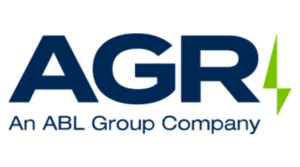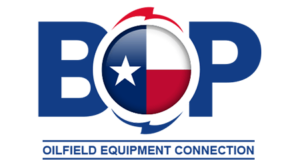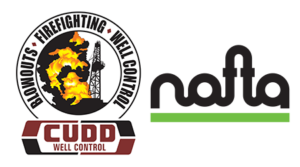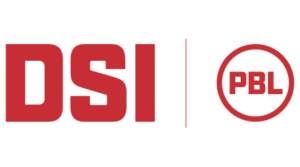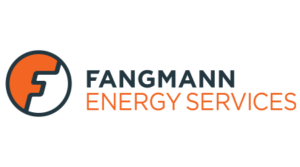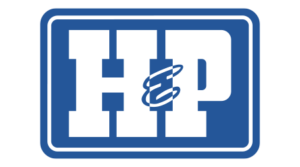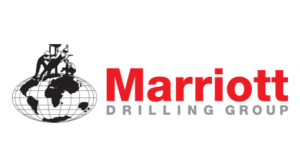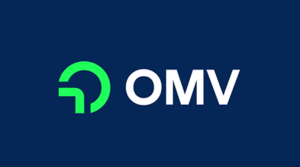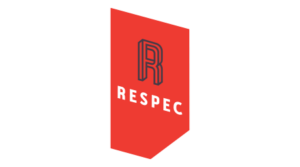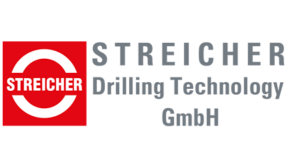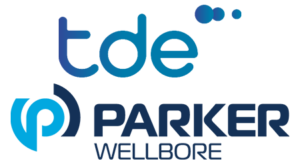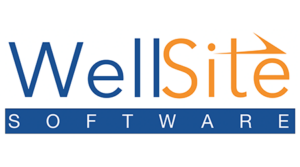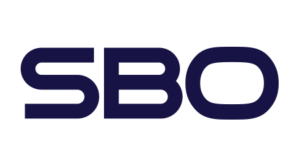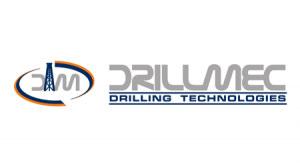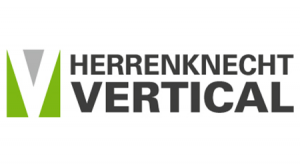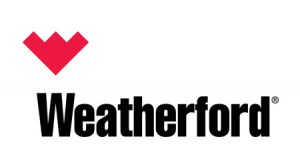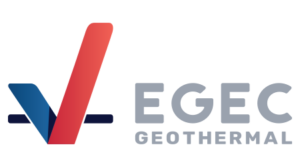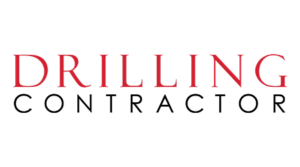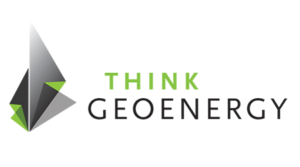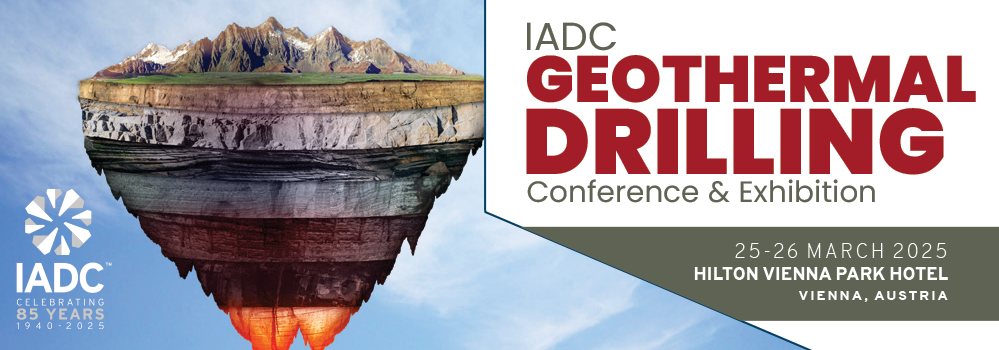
Welcome
Join the IADC Geothermal Drilling Conference & Exhibition to be at the forefront of the future of energy. This conference will focus on Geothermal Upstream, which includes subsurface, drilling, production, completions, regulatory environment, and associated topics. As a participant, you will gain insights into relevant business and ownership models, contracting and procurement strategies, and supply chains.
The conference will showcase groundbreaking technologies with the potential to revolutionize the geothermal industry and the entire energy sector. IADC’s expertise in providing definitions and guidelines for the Petroleum Upstream ideally positions it to establish a vocabulary, terms, and standards within the geothermal industry.
Geothermal energy regulatory regimes are inconsistent, and immature compared to those of the oil and gas industry, which creates obstacles and extends the lead time for geothermal projects. The conference will analyze differences in regulatory regimes and provide valuable insights for businesses and regulators.
Don’t miss out on this opportunity to shape a more reliable and clean future for the energy industry. Join the IADC Geothermal Drilling Conference & Exhibition to discuss the exciting developments happening in the upstream aspects of geothermal energy production and the issues to be addressed. Be a part of the transformation that the geothermal industry has the potential to bring to the entire energy sector.
We thank you for your support!
The International Association of Drilling Contractors (IADC) is a non-profit organization. Income from this event will be invested back into other IADC initiatives we develop to serve the drilling industry to connect, share knowledge, tackle common problems and develop solutions to critical issues in different parts of the world. By participating in an IADC event you will be improving and supporting your own industry.
IADC provides web links as a member service. IADC does not warranty or endorse the accuracy or reliability of any of the information, content, or advertisements contained on websites linked to IADC.org or any of its subsidiary pages.
Venue & Hotel
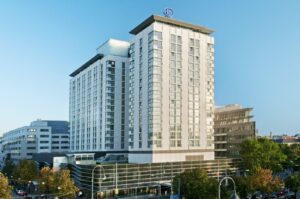
Hilton Vienna Park
The room block has expired.
Address: Am Stadtpark 1, 1030 Vienna, Austria
Phone: +43 1 71700
Negotiated Room Rate: Single room € 198,- / double room € 228,- per room per night (incl. 10% VAT), including breakfast and Wi-Fi.
Cancellation: All reservations can be cancelled free of charge until 8th of February, 2025. In case of a no-show or late cancellations as of 8th of February, 2025 will be charged to the guests by 100%.
Warning!
Please note that there are several 3rd party companies actively approaching conference delegates and exhibitors by phone and email trying to sell hotel rooms at the contracted hotel for a cheaper rate than the published rate on this conference website. Please note that these companies do not represent IADC or the hotel, nor has IADC or the hotel authorized them to use their names or trademarks on information they send out to exhibitors and delegates.
To avoid being a victim of fraud, please do not give out your credit card details to any other party and be sure to make your hotel reservations exclusively through the contracted hotel.
Venue Details
Registration Information
Photographs/Filming at Conference:
While registering for an IADC event you consent to filming, photography and/or live streaming.
We understand that there are situations where you wish to participate in our activities but still want to avoid being in any pictures or videos. Our request to you is that you make your wishes known to our staff at the IADC registration desk upon entering.
Also, we will do our best to inform anyone entering our premises about best practices around taking pictures and videos, but we cannot be held responsible for third party photo/video processing done by other guests and customers.
Press Policy
Complimentary press registration is limited to one (1) person per company. This individual must be a titled editor, writer, reporter or other bona fide editorial representative of a legitimate industry or consumer publication. Publishers and sales and marketing specialists are excluded from this complimentary registration practice and must pay the full conference registration fee to attend an event.
NO UNAUTHORIZED PHOTOS, VIDEOS OR RECORDING ALLOWED.
Recording in any form (audio, video, still photography, etc.) of presentations and/or speakers during sessions, poster presentations, workshops, etc., without the express written consent of IADC and the party to be recorded is strictly prohibited. *Those who do not comply with the Recording Equipment/Photo policy may be asked to leave the premises and barred from receiving complimentary press registration for future IADC events.
Press registration must be received 1 week prior to the event to ensure entrance. Members of the press will be identified with a green press ribbon attached to their name badge.
Need Help? Europe@iadc.org / + 31.24.675.2252
Conference Program
Tuesday, 25 March 2025
07.30 Conference Registration, Coffee Service, Poster Session & Open Exhibition – Sponsored by H&P
08.30 Welcome, Introduction & Safety Briefing: Lars Nydahl Jørgensen, Regional Director Europe, IADC
08.40 Keynote Presentation: Angelika Zartl-Klik, Senior Vice President Low Carbon Business and Renewable Energy & Bernhard Novotny, Project Director Geothermal, OMV
09.00 Opening Presentation: Marit Brommer, Chief Executive Officer, International Geothermal Association
09.20 Geothermal Market Outlook: Henning Bjørvik, Head of Renewables, Rystad Energy
09.40 IADC’s Geothermal Well Drilling Guideline: Scott Farmer, Chairman of IADC Geothermal Committee, Well Engineering Manager, H&P
10.00 IEA Report: “The Future of Geothermal”: Courtney Turich, Energy Analyst, International Energy Agency
10.20 Networking Break, Poster Session & Open Exhibition – Sponsored by H&P
10:50 Panel: A Rapid Growth in Geothermal Energy: What Will It Take to Happen?
Moderator: Lars Nydahl Jørgensen, Regional Director Europe, IADC
The number of wells drilled for oil and gas is two orders of magnitude higher than the number of geothermal wells. IGA has a defined ambition of reaching 20,000 geothermal wells annually. To reach this, the investment in geothermal drilling has to increase tenfold.
How do we bridge the gap? There are various suggestions for the solution. One is technological advancements, which will be discussed in several sessions in the rest of the conference. Others range from improved public acceptance over regulatory improvements and government support to sustainable business models.
We have a number of insightful panelists to help us getting closer to an understanding of the solution space.
Panelists:
- Marit Brommer, Chief Executive Officer, International Geothermal Association
- Tim Lines, Chief Executive Officer, Geothermal Wells LLC.
- Ádám Karakas, Partner, Boston Consulting Group
- Sanjeev Kumar, Head of Policy, European Geothermal Energy Council
12.00 Luncheon, Poster Session & Open Exhibition – Sponsored by Herrenknecht Vertical
13:30 Urban Drilling
Session Chair: Kevin Gray, Director, Black Reiver Consulting
Planning Drilling Operations in an Urban Area: Markus Rothschedl, Senior Project Manager Well Delivery, OMV
OMV and Wien Energie have founded a JV called deeep in order to drill its first deep geothermal wells in Vienna. Challenges are related with transportation, the rig (running from electric grid) and the wellsite design (legal requirements). Limitations are load dimensions and weights, traffic limitations, air and noise pollution and wellsite access. Legal situation in Austria for geothermal wells is different from other countries. Also drilling in an urban area is new for OMV. The JV partner will later be able to distribute the heat via its existing network.
Compact, Mobile, Modular, Automated Drilling Solutions for Urban Environment – Technical Solutions and Ways for Market Implementation: Andreas Reinicke, Lead Scientist Well Technology, TNO & Arthur de Mul, Product Manager Modular Rigs, Huisman
Geothermal drilling in urban areas faces significant challenges, including limited space, noise restrictions, and minimizing disruptions to daily life. These populated environments necessitating the development of compact, silent, electrified, and mobile rigs to enable geothermal energy solutions in cities, close to their users. We will highlight the potential and trends for geothermal heat provision in urban areas, discuss the market uptake challenges, and give an overview of novel light and super-light rig solutions with focus on developments in The Netherlands.
Geothermal Drilling Projects – Optimizing Drilling Rig Technology and Drilling Processes: Ulrich Hahne, Managing Director, Herrenknecht Vertical
Geothermal energy plays a crucial role in the global energy supply of the future, while focus in Europe is put on heat applications in particular. To realize such projects, drilling rigs must be adapted; a very flexible set-up and compact footprint, minimum rig emissions, highest safety standards and an optimized drilling process and logistics are key to deliver wells in urban areas. Herrenknecht Vertical has developed a dedicated series of new, automated hydraulic drilling rigs considering such requirements but also specifics to geothermal wells.
Questions & Answers
14.30 Well Design
Session Chair: Alexander Heger, Head of Department Well Delivery, OMV
Adapting Oil & Gas Expertise for High-Enthalpy Geothermal Wells: Strategies and Operational Challenges: Olimpia Dedita, Drilling Engineer, ENI SpA
This presentation will provide an overview of the conceptual model for knowledge transfer and workflow adaptation from the oil and gas sector to the geothermal industry, specifically for the construction of high-enthalpy wells (150-350°C) with focus on Drilling and Completion operations. It will highlight key findings from market research and scouting activities and will also point out on Eni’s past geothermal project experiences used as a foundation for understanding well engineering challenges.
Standardizing Geothermal Well Design, Is It Possible?: Steve Nas, Senior Drilling Engineer, WellSpec
Standardizing well designs provides opportunities to reduce project development times, high upfront capital expenditure, and risks during well construction. It can optimize production and compliance with well integrity. Implementing lessons learned from past projects is essential in this. Since 2006 some 89 wells have been drilled with 34% of the wells were sidetracked due to drilling problems. The average well construction time is 65 days, by standardizing and optimizing well design construction times could be reduced to 20 to 25 days.
Challenges While Cementing Highly Fractured Formations: Guido Di Martino, Principal Technical Professional – Geothermal and CCUS Cementing Technologies for Continental Europe Area, Halliburton
Risk Mitigation in Geothermal Projects, Investor Confidence Improvement, O & G to Geothermal – cross over, applications from equipment and personnel, Long term well integrity, Challenges in Geothermal – Bits, Loss Circulation, High Temperature, Corrosion, Casing – Metallurgy , Cementing, Production and Injection wells, Temperature Limitations, Thermal Cycling, Scaling, Conventional to EGS projects, Power Generation, Mineral Extraction & Direct Uses – additional revenue sources, Island Network Systems, Case histories – practical solutions in remote locations.
Questions & Answers
15.30 Networking Break, Poster Session & Open Exhibition – Sponsored by H&P
16.00 How Do We Address Supply Chain Capacity & Scale Issues?
Session Chair: Scott Farmer, Well Engineering Manager, H&P
Does the Geothermal Industry Face a Capacity Issue?: Alexander Nagelhout, Chief Executive Officer, Well Engineering Partners
Does the geothermal industry face a capacity issue? The geothermal industry faces various challenges: increasing cost and a relatively small number of projects which can hardly sustain a workforce and supply chain in the EU. Insights will be presented for some specific well construction elements to show what is required for sustainable growth and how that may affect a potential acceleration in a few years’ time. Multi-operator mini campaigns will also be presented as a potential solution.
Geothermal Drilling Standardization and 1,000 HP Rig Utilization: A Strategic and Tactical Approach to Accelerating Geothermal Drilling in Indonesia: Monikha Wulandari, Research and Development Coordinator, Jakarta Drilling Society
The Indonesian National Standard (SNI) for geothermal well drilling, officially launched in 2024, has become a crucial foundation for establishing guidelines that ensure the safety, quality, and sustainability of geothermal drilling activities. The use of 1,000 HP rigs for geothermal drilling has also been promoted as an effort to enhance cost efficiency and accelerate geothermal development in the country.
Optimizing Geothermal Well Development: Lessons from the Bleiswijk Drilling Campaign: BJ Staal, Well Manager, GAIA Energy
The presentation covers key lessons from Gaia Energy’s 2024 Bleiswijk drilling campaign in the Netherlands, where five geothermal wells were drilled within five months. The campaign demonstrated the value of batch drilling and adaptive execution strategies. It highlights the shift towards standardised, high-end well designs with full double-barrier architecture. The presentation underscores Gaia Energy’s commitment to enhancing quality and reducing costs through simplification and standardization, extending benefits to operations, future workovers, maintenance, and the broader geothermal industry.
Questions & Answers
17.00-18.00 Welcoming Reception, Poster Session & Open Exhibition
Wednesday, 26 March 2025
07.30 Conference Registration, Coffee Service, Poster Session & Open Exhibition – Sponsored by Weatherford
08.30 Welcome, Introduction & Safety Briefing: Lars Nydahl Jørgensen, Regional Director Europe, IADC
08:40 Keynote Presentation: Bruce Gatherer, Business Development and Drilling Advisor, Iceland Drilling
09.00 Wellbore Placement & Ranging
Session Chair: Andreas Karkossa, Rig Manager Europe, H&P
The Industry Steering Committee for Wellbore Surveying Accuracy: Andy McGregor, General Manager, H&P
High Temperature Well Placement: John Clegg, President and Chief Technology Officer, Hephae Energy Technology
Unconventional geothermal systems require accurate directional well placement at increasingly higher temperatures. Directional drilling equipment developed for the oil and gas industry cannot operate above 185°C, so higher temperature capability is urgently required. Measurement while drilling and rotary steerable tools are being developed for 210°C, with plans to increase to 300°C. Bigger rig pumps, mud chillers, insulated pipe and continuous flow systems could help to cool the BHA. Taken together, these technologies provide a ready-made solution to drilling above 200°C.
Engineering the Perfect Lateral: Mastering Absolute & Relative Wellbore Placement with MWD, GWD, and Active Magnetic Ranging: Alex Vetsak, Drilling Technology Manager, Eavor Technologies
Questions & Answers
10.00 Networking Break, Poster Session & Open Exhibition – Sponsored by Weatherford
10:30 Panel: Traditional Drilling & New Technologies
Moderator: Tony Pink, Director, Pink Granite Consulting
This exciting panel will investigate and discuss both the conventional drilling technologies that are delivering significant jumps in performance on Geothermal projects around the world and innovative, groundbreaking technologies that could deliver high rates of penetration, at great depth and high temperatures. These innovative technologies use novel hybrid drilling methods and direct energy but are at lower levels of technology readiness.
Panelists:
- Alexis Garcia, Director, NOV Geothermal
- Vasiliy Zbaraskiy, Chief Technology Officer, ZerdaLab
- Matt Houde, Co-Founder and Chief of Staff, Quaise Energy
- Igor Kocis, Chief Executive Officer, GA Drilling
- Andre El-Alfy, Drilling Manager, Geo-Energie Suisse
12.00 Luncheon, Poster Session & Open Exhibition
13.30 Well Control
Session Chair: Haas Malik, Drilling Engineering Consultant, Saudi Aramco
Geothermal Well Control Work Group to Address the Competences Gap between Well Control and Geothermal: Daniel Marcano, General Manager – Indonesia, Parker Wellbore & Toney Deer, Director of Training, Well Control School
The conventional approach to managing well control events in O&G drilling may only be partially suitable for addressing the well control situations associated with Geothermal well drilling operations. However, due to the differences in the underlying mechanism behind well-control events, current approaches may actually increase the overall operational risks. To address this issue properly, there is a critical need for a structured, industry-wide approach to Geothermal well control training and certifications.
Enhancing Geothermal Drilling through Adaptive Control of Pressure and Temperature with Managed Pressure Drilling Technologies: Shaun Toralde, Global Geothermal Segment Lead, Weatherford
The main challenge with drilling geothermal wells has always been the management of pressure and temperature. Downhole pressure and temperature management has proven historically difficult with hydrothermal resources with elevated geothermal gradients and reservoir pressures that oftentimes cannot support a full column of water. Enhanced / advanced geothermal systems have modified the challenges but there is still a need for actively managing both pressure and temperature to safely and efficiently drill geothermal wells and make geothermal projects more economic.
Well Control Considerations for a Global Geothermal Industry: Joshua Bozarth, Senior Well Control Engineer, Wild Well Control
Well control failure is one of the most significant and expensive risks facing exploration and production operations. These risks are incurred throughout the life cycle of any well, from spud to final abandonment. It is important to recognize that the technologies and methodologies that are available to mitigate these risks, and to apply relevant options under an integrated effort of well control expertise. This session addresses some of these options to help maximize well control safety in Geothermal Operations, including methods and technologies that have been brought into the well control industry in recent years, as well as those under development that are likely to be available in the foreseeable future.
Questions & Answers
14.45 Networking Break, Poster Session & Open Exhibition – Sponsored by Weatherford
15.15 Panel: People Versus Robots
Moderator: Alex Vetsak, Drilling Technology Manager, Eavor Technologies
The debate between humans and robots in drilling revolves around balancing efficiency, safety, and ethical considerations. Robots excel in hazardous environments, offering precision, continuous operation, and long-term cost savings. However, their high initial costs and potential for job displacement pose challenges. Conversely, humans bring adaptability, nuanced decision-making, and employment opportunities, but face safety risks, higher operational costs, and fatigue-related errors. Is there a balanced approach combining robotic precision with human oversight? With shrinking human resource in drilling, can we create a collaborative future where humans and robots complement each other.
- Chuck Wright, Corporate R&D Manager, NOV
- Andreas Reinicke, Lead Scientist Well Technology, TNO
- Uwe Heermann, Vice President Manufacturing, Kenera
- Ben Millward, Digitial Delivery Lead – Offshore Automation, Halliburton
16.15 Adjournment
Thursday, 27 March 2025
09.00-14.30 Hydros Seestadt (DEEEP, a JV of OMV/Wien Energie) Visits – FULL
DON’T MISS: Visit to the Hydros drilling site and onsite visitor center in Vienna to see and learn more about the first Geothermal Project of OMV, aiming to decarbonize the city of Vienna through deep geothermal heat. We will stay in the visitor center with a great view on the drilling site. All the project information will be shown there. Transportation will be arranged from the hotel to the drilling site.
All the groups are full. If you wish to be placed on the waiting list, in case someone else drops out, please send an email to europe@iadc.org
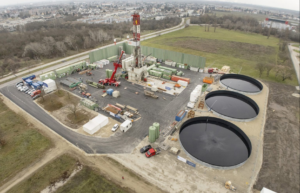
13.00-16.00 Geothermal Program Committee meeting (IADC Members only)
Poster Session & Unassigned Papers of Note:
The following paper proposals are presented as posters and will be included in the conference during the breaks. If a scheduled paper becomes unavailable, then the posters will be included in the conference as a paper. In addition, these presentations will be made available in the IADC conference proceedings, should the author so desire.
Utilize Horizontal Shale Well Technology for Deep Geothermal Wells: Kim Gunn Maver, Chief Geologist, Green Therma
A new solution for a horizontal closed loop geothermal well construction can enable a more efficient and sustainable harvesting of energy. The circulating fluid in the co-axial system will be returned to the surface in a patent pending continuous vacuum pipe nearly eliminating any heat loss and with the horizontal section efficiently harvesting the heat from the subsurface. The heat has direct applications in district heating, district cooling, heat storage and various industrial processes and is at the same time nearly CO2 emission free.
Geothermal Challenge: Chuck Wright, Corporate R&D Manager, NOV
Geothermal activities, while very similar to oil and gas technologies, has some distinctly different characteristics that are not met with current completion testing requirements. One such technological barrier to continued Geothermal Specific development is packer testing standards. The testing requirements for HPHT oil and gas diverges from the needs and requirements of geothermal widely enough to warrant different testing standards that could allow for faster development of geothermal specific technologies.
Using TLP Technology to Cut Geothermal Well Construction Costs: Kevin Gray, Director, Black Reiver Consulting
Conference Program Committee
- Jonathon Alcantar, Blade Energy
- Erwin Boering, Well Engineering Partners
- Scott Farmer, H&P
- Bruce Gatherer, Iceland Drilling
- Kevin Gray, Black Reiver Consulting
- Alexander Heger, OMV
- Daria Ivakhnenko, Black Reiver Consulting
- Andreas Karkossa, H&P
- Richard Kucs, OMV
- Haas Malik, Saudi Aramco
- Shane Marchand, H&P
- Cameron Maresh, Nabors
- Alexander Nagelhout, Well Engineering Partners
- Francisco Porturas, Archer Geo
- Marek Pyrek, Exalo
- Michael Strauss, Ensign
- Oliver Tausch, Red Drilling
- Shaun Toralde, Waetherford
- Diana Tronco, Inco-Drilling
- Alex Vetsak, Eavor Technologies
- Lars Nydahl Jorgensen, IADC
Exhibition Information (SOLD OUT)
The IADC Geothermal Drilling Conference & Exhibition is the perfect opportunity for you to position yourself in front of the International Geothermal Drilling Industry.
Cost for the 3 x 2 meter Table Top Space + 2 complimentary registrations is EUR 2.300.
The space will be set with a skirted table (e.g. size 180 cm wide x 45 cm deep, 80 cm height), two chairs and access to electricity. With the space, you receive 2 complimentary/free conference registrations and up to 2 additional registrations at half price (EUR 388).
Exhibitions at IADC events will be limited to showcasing products and services that advance technology, competency or HSE. Exhibitions centered on recruitment or employment should not take space at IADC events. IADC Exhibitions will solely be visited by conference attendees. Non-conference attendees are not allowed to enter the exhibition area.
PLEASE NOTE THAT IADC GLOBAL MEMBERSHIP IS REQUIRED FOR BOOKING AN EXHIBITION SPACE AT AN IADC EVENT (CHAPTER MEMBERSHIP NOT ELIGIBLE FOR EXHIBITION).
For more information and exhibition bookings please contact us at europe@iadc.org or phone: +31.24.675.2252.
Reservations can be made by completing the letter of agreement and returning it by e-mail: europe@iadc.org.
Exhibition space is being allocated on a first come, first served basis!
Sponsorship
There are four levels of sponsoring: Diamond sponsors, Platinum Sponsors, Gold Sponsors, and Silver Sponsors. Event sponsorships are also available and will be categorized by monetary contribution with the appropriate level of sponsorship. Please find the benefits of the sponsor packages below. The conference sponsor will receive high profile recognition before, during and after the conference.
Diamond
€25.000
SOLD
Platinum
€15.000
(5 Comps*)
Gold
€12.000
(3 Comps*)
Silver
€7.500
(2 Comp*)
Event
Reception €10.000
(3 Comps*)
Event
Luncheon €6.500
(2 Comps*)
Event
Conference App €4.000
(1 Comp*)
Event
Coffee €5.000
(SOLD)
*Comps refer to number of complimentary registration
Note: no refunds for cancellations of sponsorships will be issued.



